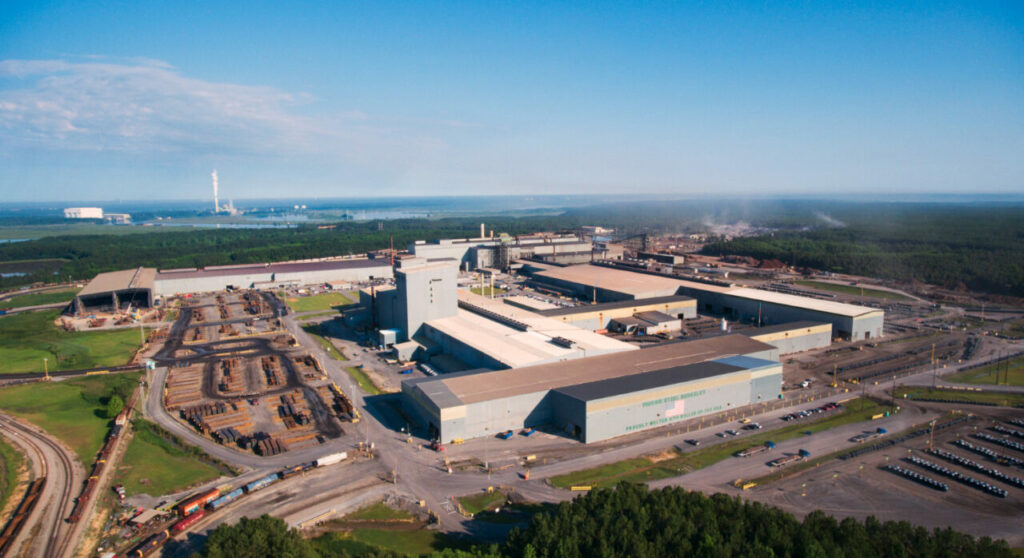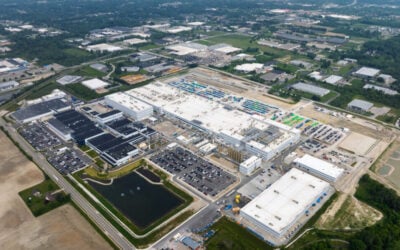
Startup Photon Vault Inc proposal in response to a request for information (RFI) from Microsoft, Google and Nucor, while unsuccessful, offered what it claimed could be a first for California.
The company’s hybrid renewable and energy storage project proposal was in response to the RFI for projects using novel and innovative technologies of primarily over 50MW, issued by the trio of companies last year.
Enjoy 12 months of exclusive analysis
- Regular insight and analysis of the industry’s biggest developments
- In-depth interviews with the industry’s leading figures
- Annual digital subscription to the PV Tech Power journal
- Discounts on Solar Media’s portfolio of events, in-person and virtual
Photon’s proposal was for a 185MW solar PV project and a 50MW/5,000MWh energy storage system using its thermal energy storage technology, which would be able to deliver eight hours of solar PV a day, 16 hours of stored renewable power via daily cycling plus 84 hours of backup power.
The RFI was seeking project proposals for a long-term renewable power purchase agreement (PPA), and Photon said its proposal could have been the first project of its kind in California.
The proposal was recently notified it would not be progressed to further stages of the RFI, which is specified for projects to be online by 2030, but Photon Vault chief commercial officer (CCO) John Langhus told Energy-Storage.news that conversations with other customers are ongoing and gave us more details on the tech.
“Ours is a thermal energy storage system, storing energy as heat and dispatching as electricity. There are three core innovations to our technology, each patented. The first is our hybrid charging process, by which we charge the system first with electricity, and then in a second stage, with direct heat. The rationale for that is primarily economic,” he said.
“The electricity stage is basically a refrigeration cycle during which we make ice in our patented ice tanks. It loses about 50% of the energy during that stage. Our heat comes from simple, passive low-cost solar thermal (not PV) collectors that is stored in our patented sand bricks. So that heat is way cheaper than the electricity and in particular, has no day-to-day cost at all – it is 100% capex.”
By replacing its lost electricity with free heat each cycle, the technology ends up with as much electricity or more during discharge than it brought in during charge, Langhus claimed.
“We call this our eRTE, our electrical-to-electrical efficiency. This high eRTE is very powerful for long duration storage that includes daily cycling. Because we don’t need a big spread between charge and discharge price.”
Photon Vault CEO Dr. Kent McCormick added: “Batteries do a great job of profiting off the daily price swings that happen when the sun stops shining and the wind stops blowing in places like California and Texas where there are lots of renewables now. But a couple of hours per day of profit-taking doesn’t really get us any closer to a well-balanced utility grid, powered mostly by renewable power.”
The firm is looking to deploy systems using its basic 5MW building blocks starting in 2026/27, and is positioning itself as a lower-cost alternative to buying power from new combined cycle gas turbine plants. However, its first system may harvest industrial heat rather than self-generating heat with solar thermal energy collectors like its RFI project proposed.
The firm has raised US$3.5 million-plus to-date with backers including Houston Angel Network, deep tech VC firm rpv, law firm Wilson Sonsini and a strategic investor called Conifer Infrastructure Partners.






